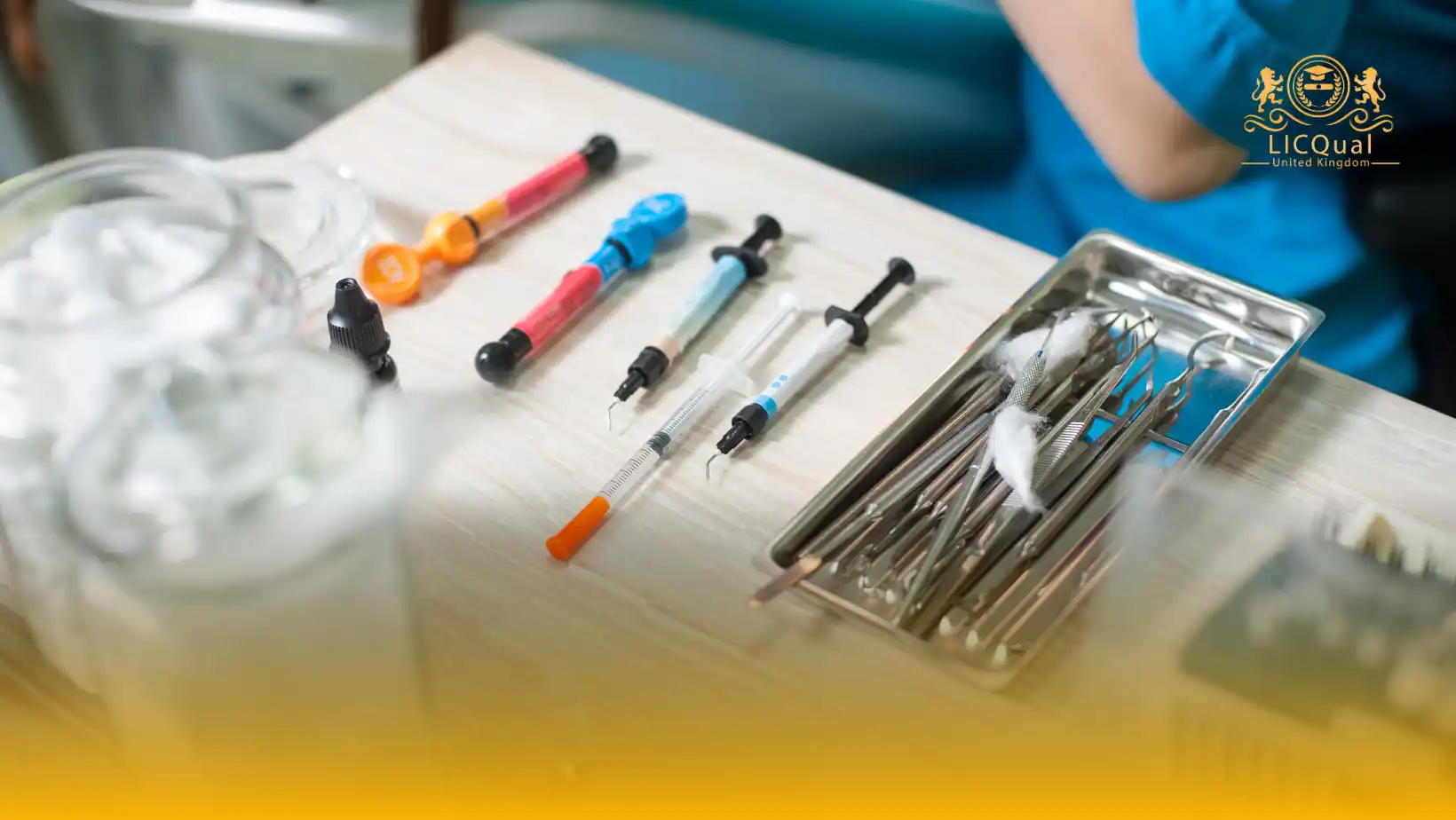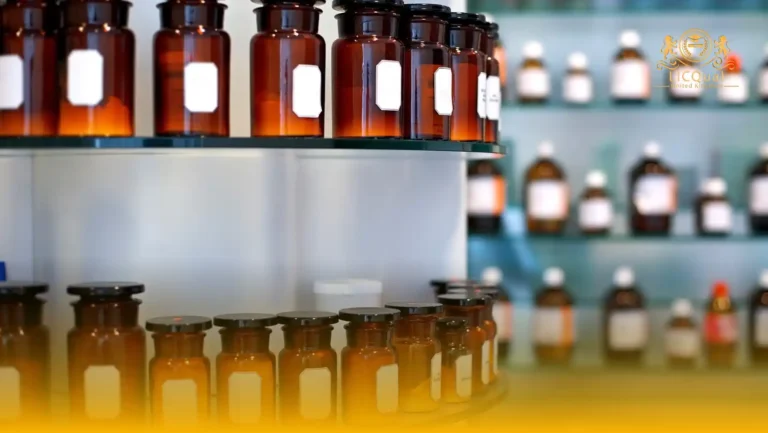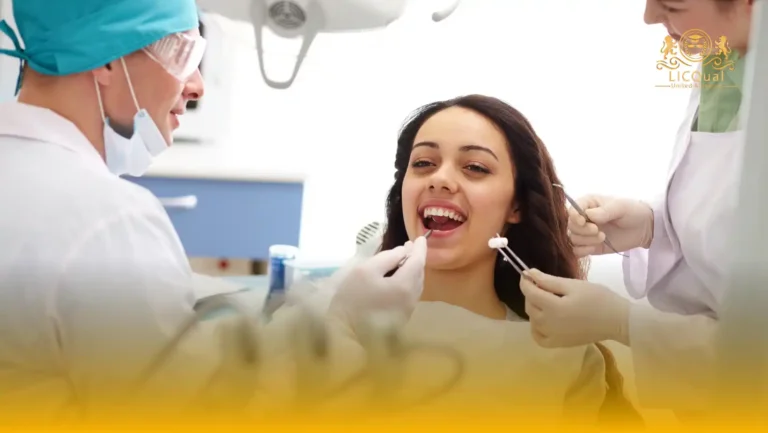The LICQual Level 3 Certificate in Dental Materials is a specialised qualification designed for dental professionals who wish to deepen their understanding of the materials used in dental practice. This course is tailored for learners with prior experience in dentistry, making it unsuitable for fresh candidates. It provides an excellent opportunity for professionals aiming to enhance their career prospects, expand their technical knowledge, and engage in Continuing Professional Development (CPD).
Throughout the course, learners will explore the properties, handling, and clinical applications of various dental materials, including composites, ceramics, metals, and polymers. The qualification emphasises the importance of selecting appropriate materials for different clinical scenarios and understanding their behaviour to ensure successful treatment outcomes. Learners will also study safety considerations, material science fundamentals, and quality assurance processes relevant to dental materials.
Centres delivering the LICQual Level 3 Certificate in Dental Materials must ensure high standards by employing competent and qualified staff with specialised knowledge in dental material sciences. Additionally, centres are required to provide access to up-to-date learning resources, practical equipment, and suitable facilities to support effective teaching and hands-on training. This commitment guarantees that learners receive comprehensive and high-quality education, preparing them for professional success.
Course Overview
Qualification Title
LICQual Level 3 Certificate in Dental Materials
Total Units
6
Total Credits
24
GLH
120
Qualification #
LICQ2200647
Qualification Specification
To enroll in the LICQual Level 3 Certificate in Dental Materials, applicants must meet the following criteria:
|
Qualification# |
Unit Title |
Credits |
GLH |
|---|---|---|---|
|
LICQ2200647-1 |
Introduction to Dental Materials |
4 |
20 |
|
LICQ2200647-2 |
Physical and Chemical Properties of Dental Materials |
4 |
20 |
|
LICQ2200647-3 |
Handling and Manipulation of Dental Materials |
4 |
20 |
|
LICQ2200647-4 |
Composite and Resin-Based Materials |
4 |
20 |
|
LICQ2200647-5 |
Metals, Alloys, and Ceramic Materials |
4 |
20 |
|
LICQ2200647-6 |
Safety, Quality Control, and Regulations |
4 |
20 |
By the end of this course, learners will be able to:
Unit 1: Introduction to Dental Materials
- Understand the classifications and general properties of dental materials.
- Recognise the roles and applications of various dental materials in clinical practice.
- Explain the importance of material selection in dental treatments.
Unit 2: Physical and Chemical Properties of Dental Materials
- Describe the key physical and chemical characteristics of dental materials.
- Understand how these properties affect the performance and durability of materials.
- Apply knowledge of material behaviour to clinical decision-making.
Unit 3: Handling and Manipulation of Dental Materials
- Demonstrate proper techniques for preparing and manipulating dental materials.
- Understand factors affecting material handling and clinical outcomes.
- Follow best practices to ensure safety and effectiveness during material use.
Unit 4: Composite and Resin-Based Materials
- Explain the composition and properties of composite and resin-based dental materials.
- Understand clinical indications and application methods for these materials.
- Assess the advantages and limitations of composites in restorative dentistry.
Unit 5: Metals, Alloys, and Ceramic Materials
- Identify common metals, alloys, and ceramics used in dental procedures.
- Understand their physical properties and clinical uses.
- Evaluate the suitability of these materials for different dental restorations.
Unit 6: Safety, Quality Control, and Regulations
- Understand safety protocols related to the handling and disposal of dental materials.
- Describe quality control measures to ensure material standards.
- Recognise relevant regulatory requirements and professional guidelines.
The LICQual Level 3 Certificate in Dental Materials is designed for dental professionals seeking to specialize in the science and application of modern dental materials. This course is ideal for anyone looking to enhance restorative outcomes, improve patient care, and gain international recognition in the field of dental material science. It provides practical knowledge, technical skills, and a strong scientific foundation for both clinical and laboratory practice.
1. General Dentists and Dental Practitioners
- Dentists aiming to master the use of restorative and prosthetic materials.
- Practitioners seeking to improve clinical outcomes through material science.
- Professionals wanting to gain international certification in dental materials.
- Clinicians looking to optimize material selection for long-lasting restorations.
- Dentists interested in evidence-based application of biomaterials.
2. Dental Hygienists and Assistants
- Hygienists wanting to understand the materials used in preventive and restorative care.
- Assistants working closely with dentists on restorative procedures.
- Professionals seeking to expand knowledge in dental biomaterials.
- Learners aiming to improve patient safety and material handling skills.
- Staff interested in contributing to high-quality restorative outcomes.
3. Dental Technicians and Laboratory Staff
- Technicians involved in prosthetic and restorative material fabrication.
- Laboratory professionals seeking advanced training in dental materials.
- Those aiming to enhance precision in material selection and processing.
- Professionals working with ceramics, composites, and dental polymers.
- Technicians wanting recognized certification for career advancement.
4. Dental Students and Graduates
- Students seeking specialized knowledge in dental material science.
- Graduates aiming to improve practical skills in restorative and prosthetic dentistry.
- Learners preparing for clinical or laboratory-based dental careers.
- Individuals looking to gain an edge with internationally recognized credentials.
- Students interested in evidence-based material application.
5. Cosmetic and Restorative Dentistry Specialists
- Dentists focusing on aesthetic restorations and smile design.
- Practitioners optimizing materials for durability, function, and aesthetics.
- Professionals aiming to improve patient satisfaction through material expertise.
- Specialists learning advanced composites, ceramics, and cements.
- Clinicians seeking to stay updated on innovative dental materials.
6. Academic and Research Professionals
- Educators teaching restorative or material-based dental courses.
- Researchers studying dental biomaterials and clinical applications.
- Academics aiming to integrate material science into curriculum development.
- Professionals contributing to evidence-based dental research.
- Instructors seeking to provide hands-on material training for students.
7. Career-Focused Dental Professionals
- Individuals aiming to expand clinical or laboratory career opportunities.
- Professionals seeking specialized skills to enhance employability.
- Practitioners wanting to offer advanced restorative and aesthetic services.
- Learners motivated by international recognition and professional growth.
- Dental professionals committed to lifelong learning and excellence.
This course empowers a wide range of dental professionals to gain practical, scientific, and recognized expertise in dental materials, preparing them for advanced clinical and laboratory practice.
To deliver the LICQual Level 3 Certificate in Dental Materials effectively, centres must meet the following requirements to ensure high-quality training and learner success:
- Qualified and Experienced Tutors: Centres must employ dental professionals or technicians with recognised qualifications and specialised expertise in dental materials to provide expert instruction and supervision.
- Access to Suitable Facilities: Centres should have clinical and/or laboratory environments equipped with the necessary dental materials, tools, and equipment for practical training.
- Comprehensive Learning Resources: Centres must provide up-to-date textbooks, digital materials, and practical aids relevant to dental material sciences.
- Health and Safety Compliance: Centres are required to maintain strict health and safety protocols, including safe handling and disposal of dental materials.
- Robust Assessment and Quality Assurance: Centres should implement assessment procedures aligned with LICQual standards and maintain effective internal quality assurance systems.
- Efficient Administrative Support: Centres must have systems for learner registration, progress tracking, and certification management.
- Opportunities for Supervised Practical Experience: Centres must ensure learners have access to supervised hands-on experience with dental materials to develop practical skills.
Meeting these centre requirements guarantees learners receive professional, safe, and comprehensive training in dental materials.
Assessment and Verification
All units within this qualification are subject to internal assessment by the approved centre and external verification by LICQual. The qualification follows a criterion-referenced assessment approach, ensuring that learners meet all specified learning outcomes.
To achieve a ‘Pass’ in any unit, learners must provide valid, sufficient, and authentic evidence demonstrating their attainment of all learning outcomes and compliance with the prescribed assessment criteria. The Assessor is responsible for evaluating the evidence and determining whether the learner has successfully met the required standards.
Assessors must maintain a clear and comprehensive audit trail, documenting the basis for their assessment decisions to ensure transparency, consistency, and compliance with quality assurance requirements.







